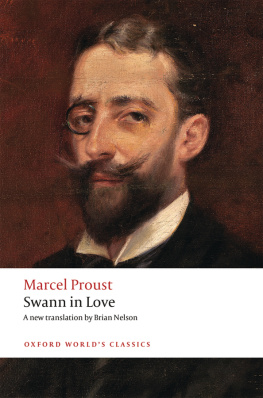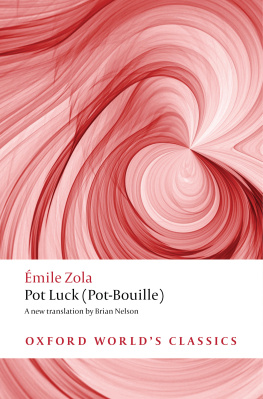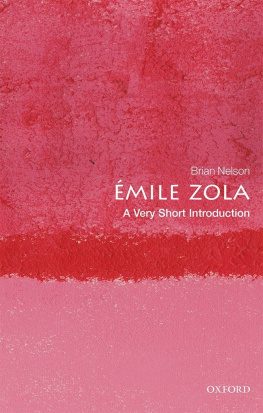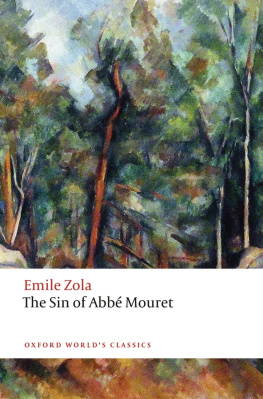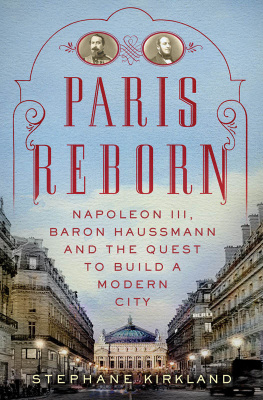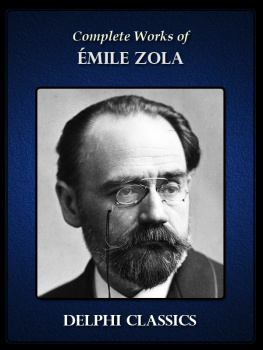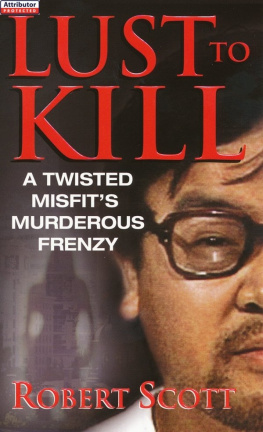OXFORD WORLDS CLASSICS
THE KILL
MILE ZOLA was born in Paris in 1840, the son of a Venetian engineer and his French wife. He grew up in Aix-en-Provence where he made friends with Paul Czanne. After an undistinguished school career and a brief period of dire poverty in Paris, Zola joined the newly founded publishing firm of Hachette which he left in 1866 to live by his pen. He had already published a novel and his first collection of short stories. Other novels and stories followed until in 1871 Zola published the first volume of his Rougon-Macquart series with the subtitle Histoire naturelle et sociale dune famille sous le Second Empire, in which he sets out to illustrate the influence of heredity and environment on a wide range of characters and milieux. However, it was not until 1877 that his novel LAssommoir, a study of alcoholism in the working classes, brought him wealth and fame. The last of the Rougon-Macquart series appeared in 1893 and his subsequent writing was far less successful, although he achieved fame of a different sort in his vigorous and influential intervention in the Dreyfus case. His marriage in 1870 had remained childless but his extremely happy liaison in later life with Jeanne Rozerot, initially one of his domestic servants, gave him a son and a daughter. He died in 1902.
BRIAN NELSON is Professor of French Studies at Monash University, Melbourne, and editor of the Australian Journal of French Studies. His publications include Zola and the Bourgeoisie and, as editor, Naturalism in the European Novel: New Critical Perspectives and Forms of Commitment: Intellectuals in Contemporary France. He has translated and edited Zolas Pot Luck (Pot-Bouille) and The Ladies Paradise (Au Bonheur des Dames) for Oxford Worlds Classics. His current projects include The Cambridge Companion to mile Zola.
OXFORD WORLDS CLASSICS
For over 100 years Oxford Worlds Classics have brought readers closer to the worlds great literature. Now with over 700 titlesfrom the 4,000-year-old myths of Mesopotamia to the twentieth centurys greatest novelsthe series makes available lesser-known as well as celebrated writing.
The pocket-sized hardbacks of the early years contained introductions by Virginia Woolf, T. S. Eliot, Graham Greene, and other literary figures which enriched the experience of reading. Today the series is recognized for its fine scholarship and reliability in texts that span world literature, drama and poetry, religion, philosophy, and politics. Each edition includes perceptive commentary and essential background information to meet the changing needs of readers.
Refer to the to navigate through the material in this Oxford Worlds Classics ebook. Use the asterisks (*) throughout the text to access the hyperlinked Explanatory Notes.
OXFORD WORLDS CLASSICS

MILE ZOLA
The Kill
(La Cure)

Translated with an Introduction and Notes by
BRIAN NELSON


Great Clarendon Street, Oxford OX2 6DP
Oxford University Press is a department of the University of Oxford.
It furthers the Universitys objective of excellence in research, scholarship,
and education by publishing worldwide in
Oxford New York
Auckland Bangkok Buenos Aires Cape Town Chennai
Dar es Salaam Delhi Hong Kong Istanbul Karachi Kolkata
Kuala Lumpur Madrid Melbourne Mexico City Mumbai Nairobi
So Paulo Shanghai Taipei Tokyo Toronto
Oxford is a registered trade mark of Oxford University Press
in the UK and in certain other countries
Published in the United States
By Oxford University Press Inc., New York
Editorial material Brian Nelson 2004
The moral rights of the author have been asserted
Database right Oxford University Press (maker)
First published as an Oxford Worlds Classics paperback 2004
All rights reserved. No part of this publication may be reproduced, stored in a retrieval system, or transmitted, in any form or by any means, without the prior permission in writing of Oxford University Press, or as expressly permitted by law, or under terms agreed with the appropriate reprographics rights organizations. Enquiries concerning reproduction outside the scope of the above should be sent to the Rights Department, Oxford University Press, at the address above
You must not circulate this book in any other binding or cover
and you must impose this same condition on any acquirer
British Library Cataloguing in Publication Data
Data available
ISBN 0192804642
1 3 5 7 9 10 8 6 4 2
Typeset in Ehrhardt
by RefineCatch Limited, Bungay, Suffolk
Printed in Great Britain by
Clays Ltd., St. Ives plc.
CONTENTS
INTRODUCTION
The Kill (La Care ), published in 1872, is the second volume in Zolas great cycle of twenty novels, Les Rougon-Macquart, and the first to establish Paris as the centre of Zolas narrative world. Zola began work on the cycle in 1868 at the age of 28, and devoted himself to the project for the next quarter of a century. It is the chief embodiment of naturalismZolas brand of realism, and a logical continuation of the realism of Balzac and Flaubert.
As a writer, Zola was in many respects a typical product of his age. This is most evident in his faith in science and his acceptance of scientific determinism, which was the prevailing philosophy of the latter part of the nineteenth century in France. Zola placed particular emphasis on the scientific nature of his project; his naturalist theories were quite explicit in their analogies between literature and science, the writer and the doctor. He was influenced by the philosopher Hippolyte Taines views on heredity and environment, and by Prosper Lucas, a forgotten nineteenth-century scientist, the author of a treatise on heredity. Zola himself claimed to have based his method largely on the physiologist Claude Bernards Introduction to the Study of Experimental Medicine (Introduction ltude de la mdecine exprimentale ), which he had read soon after its appearance in 1865. Zola espoused the Darwinian view of man as an animal whose actions were determined by his heredity and environment; and the truth for which he aimed could only be achieved, he argued, from a meticulous notation of verifiable facts, a methodical documentation of the realities of nature, and, most importantly, systematic demonstrations of deterministic natural laws in the unfolding of his plots. The art of the novelist, Zola argued, represented a form of practical sociology, and complemented the work of the scientist, whose hope was to change the world not by judging it but by understanding it.
The subtitle of the Rougon-Macquart cycle, A Natural and Social History of a Family under the Second Empire, suggests Zolas two interconnected aims: to embody in fiction scientific notions about the ways in which human behaviour is determined by heredity and environment; and to use the symbolic possibilities of a family whose heredity is warped to represent critically certain aspects of a diseased societythe decadent and corrupt, yet dynamic and vital, France of the Second Empire (185270). At one level, the Rougon-Macquart cycle is an account of French life from the coup dtat that placed Napoleon III on the throne to the French defeat at the hands of the Prussians at the Battle of Sedan (1 September 1870), which brought about the Empires collapse. Through the fortunes of a single family, Zola examined the political, moral, and sexual landscape of the late nineteenth century in a way that scandalized bourgeois society. He was the first novelist to write a series of books portraying the lives of members of one family, though his example has frequently been followed since. The Rougon-Macquart family is descended from the three children, one legitimate and two illegitimate, of an insane woman, Tante Dide, who dies in the last volume of the series,
Next page

